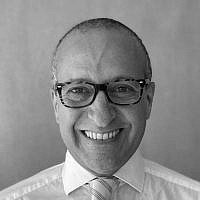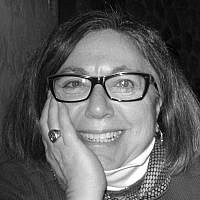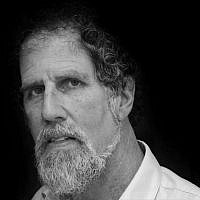Our Struggle Could Still Have A Fairy Tale Ending
By Jorge Diener, Executive Director, Hadassah International
Mystery and magic often come together to the party. Fairy tales are full of the orphans, loners, and deprived whose storylines made them princesses and achievers; allowing them to live happily ever after. For fairy storytelling to happen, we need an extremely dramatic opening that leads eventually to an enchanted grand finale.
Cinderella endures a life of misery under her stepmother’s cruel domination before she becomes the chosen one in the kingdom’s palace. Queen Esther, whose biblical name was Hadassah, was not a Cinderella. However, after facing the potential extermination of her people, she became a queen and savior at once.
So, will the dramatic era that the world is currently experiencing have a happy-ever-after ending? The answer might be in the Sukkah we build on Sukkot.
Yes, the Sukkah. That temporary dwelling open to the elements that Jews build every year at the first full moon after Rosh Hashanah (the New Year), thereby reliving for an entire week the precarious life of the Children of Israel in the desert on their way to their happy ending, the Promised Land.
It is not by chance that the Exodus story is the basis for the first books of the Bible. It contains the deepest and most extraordinarily revealing windows into human values and the connections between them. The ideas of freedom, responsibility, and caring for one another are central to the storyline. Passover is a celebration of freedom reminding us of the departure from slavery in ancient Egypt. However, for the Children of Israel to reach their destination as one, it was not enough to simply be free. It was essential for them to learn to become a collective, to believe in the value of togetherness, in freedom.
While Passover focuses on the unchaining from oppressing hands, Sukkot deals with the creation of an inter-human chain of free people who care for each other.
Because what are we building when we erect a Sukkah? It is not just a memory of houses in the desert, but something well beyond the physical construction. The Sukkah is a symbol of the fragility of the material world against the strength of community, of peoplehood, of mutual caring. Its doors are open to the stranger wandering unknown lands, its interiors are made of souls instead of furniture. In a way, it is also a reminder of what matters most, of the deeper meaning of our existence.
In this era of global challenges, when I think about fragility, I think about the state of the world. Should I call it the fragility of our planet, or that of humankind?
Undoubtfully, at the core of the current global crisis, stands what appears to be a hard-to-end pandemic. It has made all our assumptions about how we plan our lives outdated. It is a time of self-reflection and collective thinking.
In the last few days, as Executive Director of Hadassah International, I had a chance to talk with some of Hadassah Medical Organization’s (HMO) frontline doctors still fighting for the lives of those affected by Covid-19. I asked them to make an analogy between the Sukkah and the world today and give their insight as of how we could make this fragile world safer, like in the Sukkah.
Prof. Sigal Sviri expressed the struggle between human action and natural factors beautifully:
“I think that what is required from all of us in fighting this pandemic is first of all to realize the power and strength of nature. We need to be humble when we face nature, to know that we have been given the wisdom to prevent disease and fight it, but that we are a part of a much bigger and stronger force driving the world and its occupants.”
As the Director of HMO’s Intensive Care Unit for Covid-19, she has the wisdom to fight the disease, but recently she has been spending endless hours dealing with some extremely difficult cases, including some very young children. Prof. Sviri wisdom’s goes beyond her medical knowledge. In HMO’s over 100-year tradition, she sees beyond the patient bed and looks at the broader human perspective:
“We need to understand that we are all biologically similar. The virus does not discriminate between human beings however rich , powerful, and advantaged they may be. Therefore, we need to have solidarity between individuals and between nations. We need to share knowledge and technology as much as we can, and we need to have empathy for anyone who needs our help.”
By the end of our conversation and before running to receive another patient who needed urgent respiratory assistance, she asked me to make sure I shared her plea:
“This pandemic should teach us to be humble and kind, to be willing to give up on our own safety and comfort, just as medical teams do all over the world for the sake of others. And to please, please, please get vaccinated for the sake of us all.”
In the Sukkah, the fragile walls are not enough. In the world today, medical knowledge, vaccines, and governments, are also not enough. The people that inhabit this world can win this battle for us. As Prof. Dror Mevorach, Head of the Internal Medicine Covid Unit at HMO, said:
“If the world is like a Sukkah, in order to keep it safe we need to remember that our lives are temporary, like a Sukkah, and that is why we should respect other people and find a true meaning for our life.”
The meaning for our lives that Prof. Mevorach talks about includes our physical life, something that can happen only if we create ways to find a solution to the pandemic in freedom, together.
Prof. Yossi Karko, Head of HMO’s Clinical Pharmacology Unit has been involved in the clinical trials of the Israel BriLife Covid-19 vaccine and is an expert in vaccine development. Living inside the world of medical research, he can feel the power of coming together:
“The value of cooperation among nations is essential. No country alone will be able to win this battle. And that cooperation is exactly what is happening right now in the field of research. Being together, thinking together beyond borders. If we can use the resources of humankind cooperating towards the same goal, then we will succeed.”
It is that human power that will make this breakable world safe and strong again. Like in the Sukkah, we, the community of people who care can come together and give ourselves a reason to celebrate. If we succeed, we will live happily ever after.
This is not a fairy tale, but it could still have a happy ending. This time, it’s up to us.
THE END.




